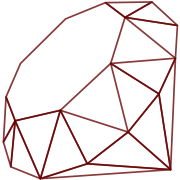The Ruby core team cares a lot about Unicode, and this is why we have pretty good Unicode support in the language.
Even though the Unicode standard evolves constantly - it gets updated at least once a year - Ruby's Unicode support is often only a little bit behind the current version of Unicode. The following tables list which Ruby version supports which version of Unicode / Emoji:
Ruby / Unicode
| Ruby Version | Unicode Version |
|---|---|
| 3.3 | 15.0.0 |
| 3.2 | 15.0.0 |
| 3.1 | 13.0.0 |
| 3.0 | 12.1.0 |
| 2.7 | 12.1.0 |
| 2.6.3+ | 12.1.0¹ |
| 2.6.2 | 12.0.0 |
| 2.6.1- | 11.0.0 |
| 2.5 | 10.0.0 |
| 2.4 | 9.0.0 |
| 2.3 | 8.0.0 |
| 2.2 | 7.0.0 |
| 2.1 | 6.1.0 |
| 2.0 | 6.1.0 |
| 1.9 | 5.2.0 |
¹ Unicode 12.1 introduced a single character
Starting with Ruby 2.4, you can find out your Ruby version's Unicode support with:
RbConfig::CONFIG["UNICODE_VERSION"]
Ruby / Emoji
| Ruby Version | Emoji Version |
|---|---|
| 3.3 | 15.0 |
| 3.2 | 15.0 |
| 3.1 | 13.1 |
| 3.0 | 12.1 |
| 2.7 | 12.1 |
| 2.6.2+ | 12.0 |
| 2.6.1- | 11.0 |
| 2.5 | 5.0 |
Starting with Ruby 2.6, you can find out your Ruby version's Emoji support with:
RbConfig::CONFIG["UNICODE_EMOJI_VERSION"]
Also See
- unicode-version: These tables available as a gem
- unicode-emoji: Regular Expression for Unicode Emoji
- unicode-x: More micro libraries which provide latest Unicode data
More Idiosyncratic Ruby
- Please Comment on GitHub
- Next Article: Super Snakes
- Previous Article: Clear Case of Unclear Casing
